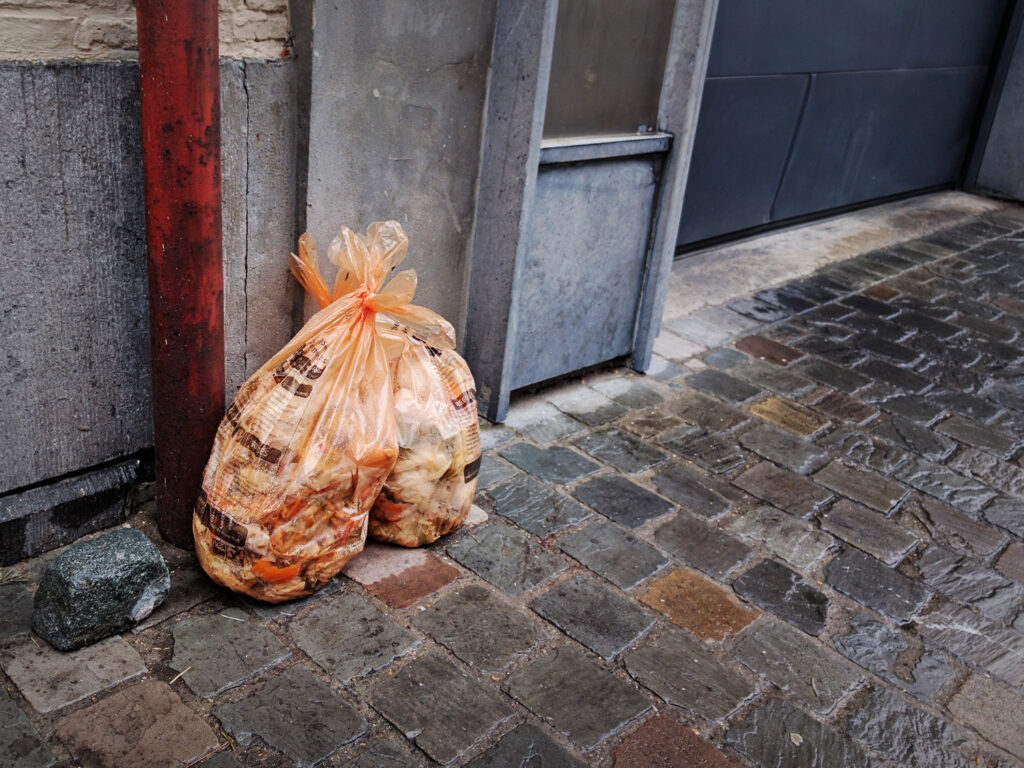The reform of waste collection in Brussels will be evaluated in a few weeks’ time, then again a few months later, Brussels Environment Minister Alan Maron said on Wednesday.
Mr Maron made the disclosure during a mini-debate in parliament, in response to queries from several legislators, mainly from the opposition. The questions related to the early days of implementation of the new waste collection schedule, which has suffered from teething problems.
The new system, linked to the Europe-wide obligation to sort organic waste, has been described as difficult by capital residents. It includes two changes.
Call for more weekly collections of white bags
Firstly, the collection of white bags – unsorted waste – is now limited to once per week, instead of twice.
Secondly, residents are obliged to place organic waste in separately collected orange bags.
On some roads, waste collection is again organised in the evening.
After one or two hiccups earlier this week, Les Engagés called for a moratorium on the single weekly collection of white bags until September. However, Minister Maron rejected this option on “operational” grounds, arguing that it would prevent the collection of orange bags.
Integrated underground containers? Possibly later
For evening collections, the Mouvement Réformateur (MR) deplored the fact that residents would be forced to take out their bins over a two-hour period.
MR’s David Leisterh pleaded for a more ambitious policy in the long term, aimed in particular at a massive integration of underground containers to take small flats into account. He also argued in favour of delegated management to improve waste collection.
Minister Maron did not reject the idea of underground containers, but said that this would need to be a long-term aim, given the constraints it entails.
On the issue of evening collections, he said they had been reactivated at the request of the mayors and are done by volunteer staff.
Multiple coordination meetings held prior to implementation
According to Maron, there had been many coordination meetings before the reform, involving the municipalities, the management of Brussels Environmental Services, and unions representing the agency’s workers.
“The main thing is that this difficult period of uncertainty should be as short as possible, and we are working on it, very frankly, with a lot of energy,” he stressed.
Maron conceded that the new system is complicated for the residents of Brussels. However, he said, many are already on board.
During the discussions, the Workers’ Party, PTB, reiterated its demand for a return to two white bag collections per week and criticised the content of the 20-page explanatory leaflet on the reform that was sent to residents.
'The ABP calendar is much more readable...'
In response, the minister used as an example the Flemish municipality of Zelzate, where the PTB sits in the majority with the Flemish socialists.
“You have a show flat in Zelzate,” he said. “There is only one collection of white bags per week and they have to be paid for. The explanatory document for that municipality is 36 pages long.”
“The ABP (Brussels Environment Agency) calendar is much more readable,” Maron said, “all this to say that waste collection is complicated and it is not obvious when you are faced with reality.”

